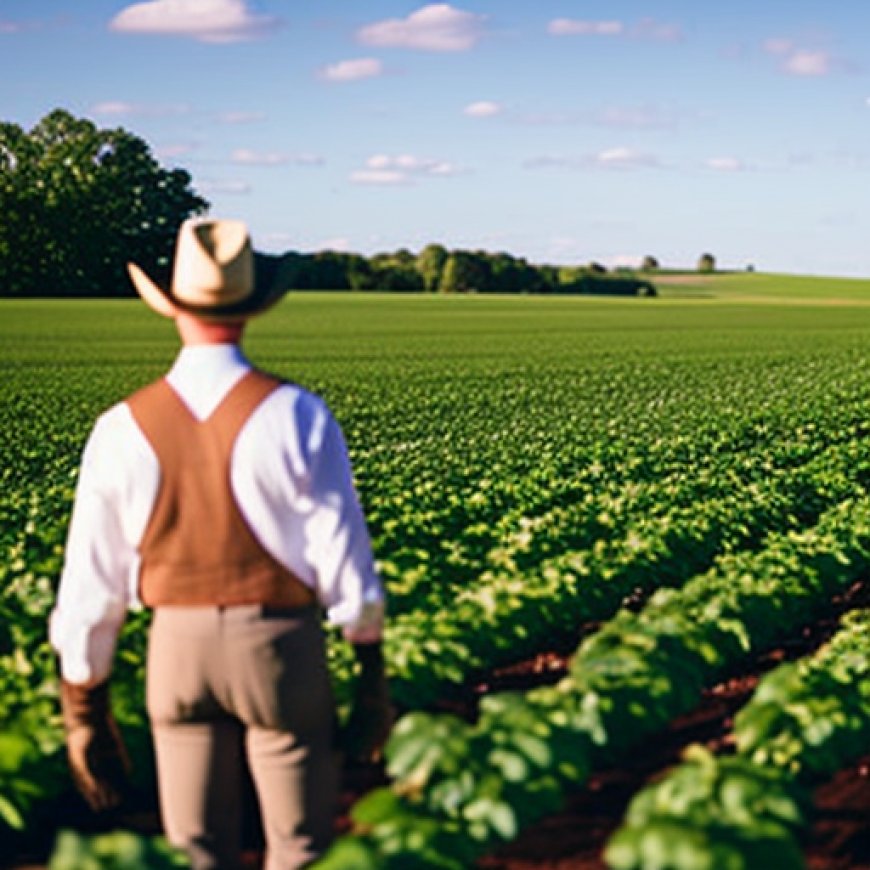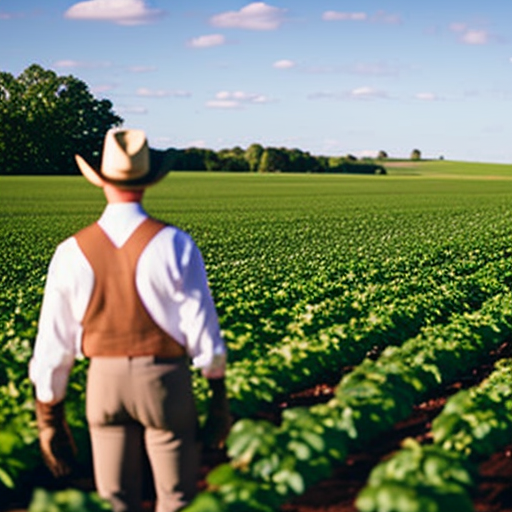American Farmland Trust Launches Advanced Soil Health Training for Influencers
American Farmland Trust Launches Advanced Soil Health Training for Influencers Morning Ag Clips -



AFT will sponsor and train soil health advisors who can share their expertise with their communities to support the scaling-up of climate-smart agricultural practices
American Farmland Trust Calls for Agricultural Influencers to Attend Advanced Soil Health Training
WASHINGTON — American Farmland Trust calls for agricultural influencers working in corn, soy, wheat, cotton, and dairy systems to apply for the opportunity to attend AFT’s Advanced Soil Health Training, a one-year training course, made up of four two-day in-person in-region training sessions in the Midwest, Southeast, Mid-Atlantic, New York, and New England.
Influencers are soil-health successful farmers and other agricultural professionals who are ready to become Soil Health Advisors to farmers looking to implement climate-smart practices on their farms. The goal of the training is to scale up adoption of climate-smart practices by establishing trained leaders in farming communities who can provide trusted technical guidance and facilitate peer-to-peer learning and networking whereby information gets shared broadly over time and support mechanisms facilitate successful adoption.
Such influencers will be selected with a specific focus on identifying and engaging underserved producers and will include soil health successful farmers, retailers, consultants, trainers and community leaders, non-profit staff and other agricultural services providers.
“American Farmland Trust’s Advanced Soil Health Training program is designed for farmers and farm advisors who share an interest in improving soil health,” said Dr. Bianca Moebius-Clune, AFT Climate and Soil Health Director. “We are excited to bring the best in agricultural education through our expert trainers, and to give participants the necessary tools and cohort to grow their own learning, share knowledge and inspire and guide change within their networks.”
The training will be balanced between classroom and field education, to educate participants on real-world applications of soil health concepts at visits to farms in their region. Leading agricultural training professionals SDGs, Targets, and Indicators
1. Which SDGs are addressed or connected to the issues highlighted in the article?
2. What specific targets under those SDGs can be identified based on the article’s content?
3. Are there any indicators mentioned or implied in the article that can be used to measure progress towards the identified targets?
Table: SDGs, Targets, and Indicators
| SDGs | Targets | Indicators |
|---|---|---|
| SDG 2: Zero Hunger | 2.4: By 2030, ensure sustainable food production systems and implement resilient agricultural practices that increase productivity and production, that help maintain ecosystems, that strengthen capacity for adaptation to climate change, extreme weather, drought, flooding, and other disasters, and that progressively improve land and soil quality. | – Number of trained soil health advisors who can provide technical guidance and facilitate peer-to-peer learning – Number of farmers adopting climate-smart practices as a result of the training |
| SDG 13: Climate Action | 13.2: Integrate climate change measures into national policies, strategies, and planning. | – Reduction in greenhouse gas emissions from the implementation of climate-smart practices |
| SDG 15: Life on Land | 15.3: By 2030, combat desertification, restore degraded land and soil, including land affected by desertification, drought, and floods, and strive to achieve a land degradation-neutral world. | – Number of acres of land impacted by the training and adoption of climate-smart practices |
Behold! This splendid article springs forth from the wellspring of knowledge, shaped by a wondrous proprietary AI technology that delved into a vast ocean of data, illuminating the path towards the Sustainable Development Goals. Remember that all rights are reserved by SDG Investors LLC, empowering us to champion progress together.
Source: morningagclips.com

Join us, as fellow seekers of change, on a transformative journey at https://sdgtalks.ai/welcome, where you can become a member and actively contribute to shaping a brighter future.







